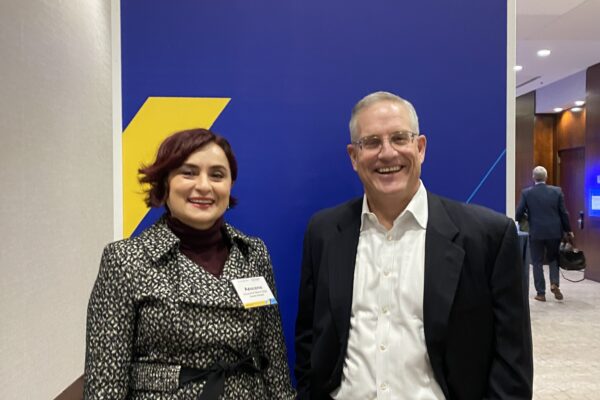3-19-20 President Trump signs Families First Coronavirus Response Act
WOODS OVIATT GILMAN LLP CORONAVIRUS (COVID-19) CLIENT ALERT
Families First Coronavirus Response Act Summary
Last evening, President Trump signed H.R. 6201, Families First Coronavirus Response Act (the "Act"). Below is a summary of the pertinent provisions regarding Emergency Paid Sick Leave and Emergency Paid Family Leave. A copy of the full bill can be found here: https://www.govtrack.us/congress/bills/116/hr6201/text/eh#compare=dhg-405128
Of important note, now that the Act is law, the Secretary of Treasury must set an effective date within fifteen (15) days from the President's signing, meaning that the Act will be effective no later than April 2nd but may be effective sooner. No employer credits under the Act (as discussed below) will be collectible by companies for leave given until the effective date.
Emergency Paid Sick Leave
Who Is A Covered Employer?
- Companies with fewer than 500 employees
- Local, state and federal government
- Companies with a multiemployer collective agreement and who pay into a multiemployer plan
Who Is An Eligible Employee?
Eligible full-time employees (regardless of how long they have been employed) who are unable to work (or telework) due to a need for leave because:
- The employee is subject to a Federal, State or local quarantine or isolation order related to COVID-19;
- The employee has been advised by a health care provider to self-quarantine due to concerns related to COVID-19;
- The employee is experiencing symptoms of COVID-19 and is seeking a medical diagnosis;
- The employee is caring for an individual who is subject to an order as described in the first or second bullet point above;
- The employee is caring for a son or daughter whose school or place of care has been closed, or where the child care provider of such son or daughter is unavailable due to COVID-19 precautions; or
- The employee is experiencing any other substantially similar condition specified by the Secretary of Health and Human Services in consultation with the Secretary of Treasury and the Secretary of Labor.
This does not apply to an employee of a health care provider or an emergency responder if the employer elects to exclude such employees from application of this portion of the Act.
What Is Required?
Eligible full-time employees are entitled to 80 hours of paid time off at their regular rate of pay (up to $511 per day) to self-quarantine, seek a diagnosis or preventive care, or receive treatment for COVID-19 (the first three bullet points above).
Eligible part-time employees are entitled to the same fully paid time off (up to $511 per day) for the number of hours equal to the number of hours that such employee works, on average, over a 2-week period.
Eligible full-time employees are entitled to 80 hours of paid time off at 2/3 of their regular pay (up to $200 per day) to care for a family member or to care for a son or daughter whose school has been closed or where the child's care provider is unavailable due to COVID-19 precautions (the fourth and fifth bullets).
How Long Will This Last?
The Act is currently effective through December 31, 2020; however, paid sick time provided to an employee shall cease beginning with the employee's next scheduled work shift immediately following the termination of the need for such leave.
Can Employers Require Employees to Use Existing Paid Leave (i.e, PTO)?
No. An employer may not require an employee to use other paid leave provided by the employer to the employee before the employee uses the paid sick leave provided by the Act.
Notice to Employees
Within 7 days, the Department of Labor will provide a model notice that employers will be required to post advising employees of this leave entitlement. Although not yet delineated by the Secretary of Labor, it is likely that employers may have an obligation to provide this to employees who are not in the workplace due to COVID-19 workplace restrictions.
Employers with Multi-Employer Bargaining Units
An employer signatory to a multi-employer collective bargaining agreement may, consistent with its bargaining obligations and its CBA, fulfill its obligations under this Act by making contributions to a multiemployer fund, plan, or program based on the hours of paid sick time each of its employees is entitled to under this Act provided that the fund, plan or program enables employees to secure pay from such fund, plan or program based on hours they have worked under the CBA for the uses specified in the Act.
Emergency Paid Family Leave Act
Who Is A Covered Employer?
- Companies with fewer than 500 employees (for each working day during each of 20 or more calendar workweeks in the current or preceding calendar year)
- State & local government; certain federal government agencies
- Companies with a multiemployer collective agreement and who pay into a multiemployer plan
Who Is An Eligible Employee?
Employees who have been employed by an employer for at least 30 calendar days and who are unable to work (or tele-work) due to a need for leave to care for the son or daughter under 18 years of age if the child's school or place of care has been closed, or the child care provider of such son or daughter is unavailable due to COVID-19 precautions.
The Secretary of Labor shall have the authority to issue regulations to exclude certain health care providers and emergency responders from the definition of an eligible employee and to exempt small businesses with fewer than 50 employees when the imposition of such requirements would jeopardize the viability of the business as a going concern. This exception will be narrowly construed.
What Is Required?
The first 10 days of leave may be unpaid (however, note that most eligible employees will qualify for the paid sick time outlined above during that period). After this 10 day period, an employer shall provide paid leave for each remaining day than an employee takes, up to a maximum of 12 weeks of total leave (unpaid and paid), at a rate of 2/3 an employee's regular rate of pay and based upon the number of hours the employee would otherwise normally be scheduled to work.
Notwithstanding the foregoing, the maximum amount of paid leave shall not exceed $200 per day (and $10,000 in the aggregate).
In the even an employee's schedule varies from week to week such that an employer cannot determine with certainty the number of hours the employee would have worked if such employee had not taken this leave, the employee shall use the average number of hours that the employee was scheduled per day over the 6 month period ending on the date the employee begins such leave, including hours for which the employee took leave of any type. If the employee did not work over such period, the reasonable expectation of the employee at the time of hiring as to the average number of hours per day that the employee would normally be scheduled to work shall be used.
Employee Notice of Need for Leave
Employees who require such leave shall provide their employer with as much notice as is practicable.
Are Any Employers With Less Than 500 Employees Exempt From The Obligation To Hold The Employee's Position Open For 12 Weeks?
Employees with less than 25 employees are not required to hold the employee's position open for them if the employee takes this leave and the position held by the employee when the leave commenced does not exist due to economic conditions or other changes in operating conditions of the employer that affect employment and are caused by the current public health emergency during the period of the leave.
The employer must make reasonable efforts to restore the employee to a position equivalent to the position the employee held when the leave commenced, with equivalent benefits, pay and other terms and conditions of employment. If reasonable efforts fail, the employer has an affirmative obligation to contact the employee if an equivalent position becomes available during the 1 year period beginning on the earlier of the date on which the need for leave concludes or the date that is 12 weeks after the date on which the leave commenced.
Employers with Multi-Employer Bargaining Units
An employer signatory to a multi-employer collective bargaining agreement may, consistent with its bargaining obligations and its CBA, fulfill its obligations under this Act by making contributions to a multiemployer fund, plan, or program based on the hours of paid leave each of its employees is entitled to under this Act provided that the fund, plan or program enables employees to secure pay from such fund, plan or program based on hours they have worked under the CBA for paid leave taken under the Act.
Employer Tax Credits
Employers will be required to initially front the cost of both the Paid Sick Leave and Paid Family Leave but will be reimbursed by the federal government within 3 months. The reimbursement will cover both the wages paid and the employer's contribution to employee health insurance premiums during any period of leave up to the wage limits specified in the foregoing paragraphs.
This reimbursement will occur through a refundable tax credit that will count against the employer's payroll tax (regardless of profit or non-profit status). Employers will submit these expenses as part of their estimated quarterly tax payments. If the employer's costs are greater than their tax liability, they get a refund from the IRS.
The amount of the credits allowed for paid sick leave and paid family leave shall be increased by so much of the employer's qualified health plan expenses as are properly allocable to the qualified sick leave wages for which such credit is allowed. "Qualified health plan expenses" shall mean the amounts paid or incurred by the employer to provide and maintain a group health plan (as defined by I.R.C. 5000(b)(1)) but only to the extent that such amounts are excluded from the gross income of employees by reason of section 106(a) of the Act.
The gross income of the employer, for the taxable year which includes the last day of any calendar quarter with respect to which a credit is allowed, shall be increased by the amount of such credit. Any wages taken into account in determining the credit allowed under this section shall not be taken into account for purposes of determining the credit allowed under Section 45S of the I.R.C.
Please contact your Woods Oviatt attorney or the following attorneys regarding COVID-19 related issues:
COVID-19 Multi-resource Crisis Group Co-Leaders


